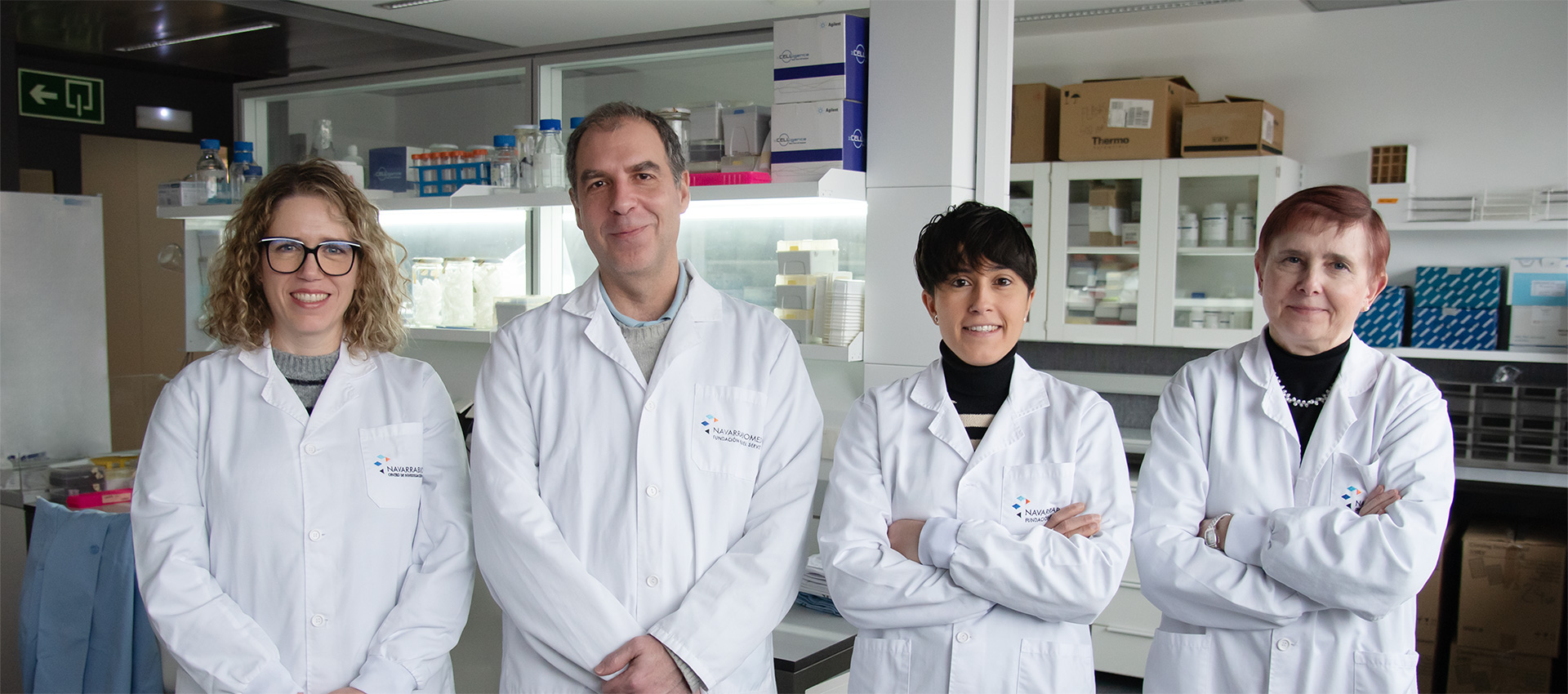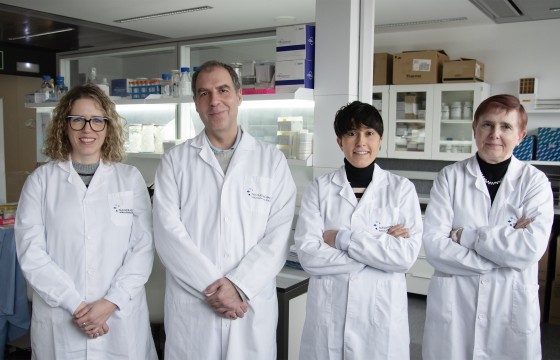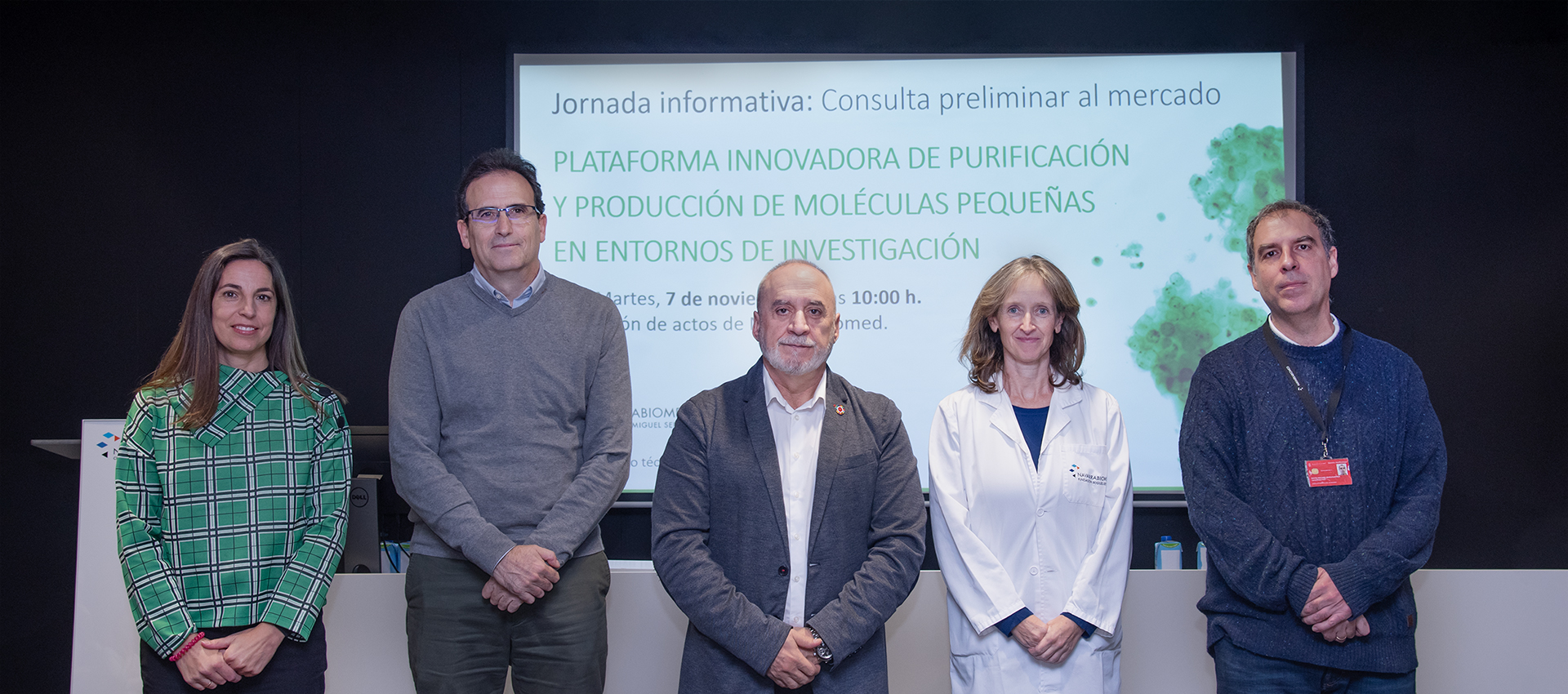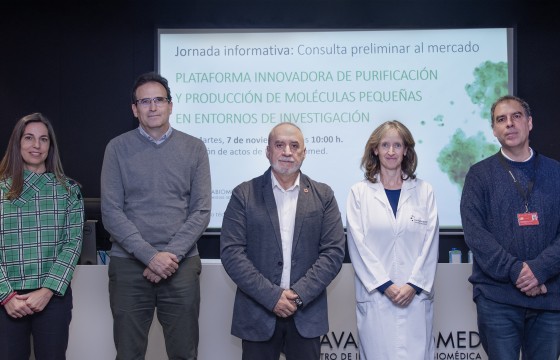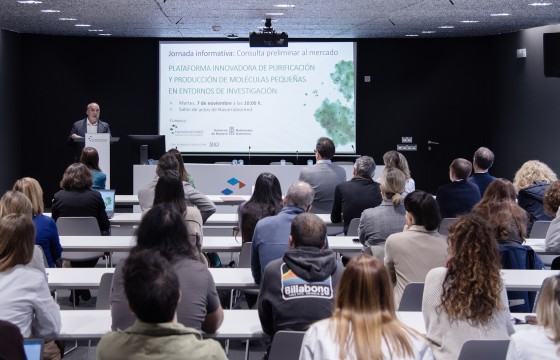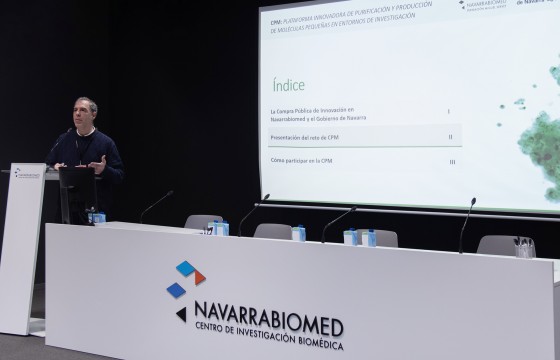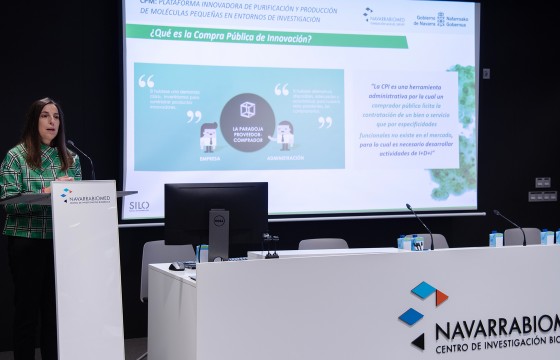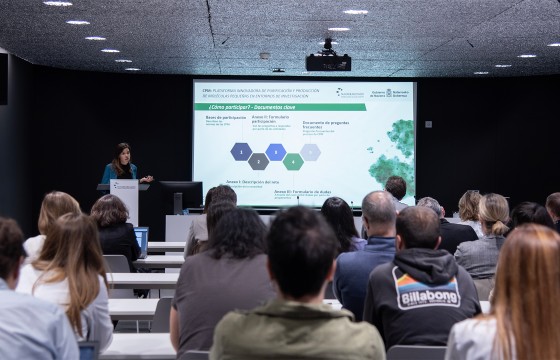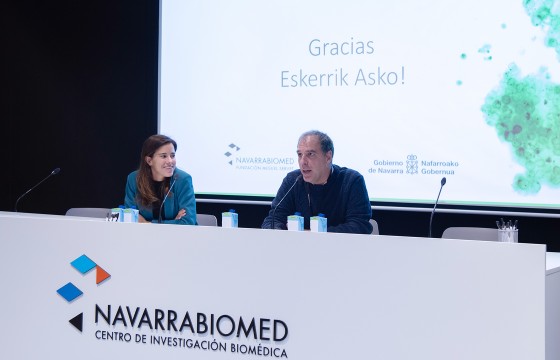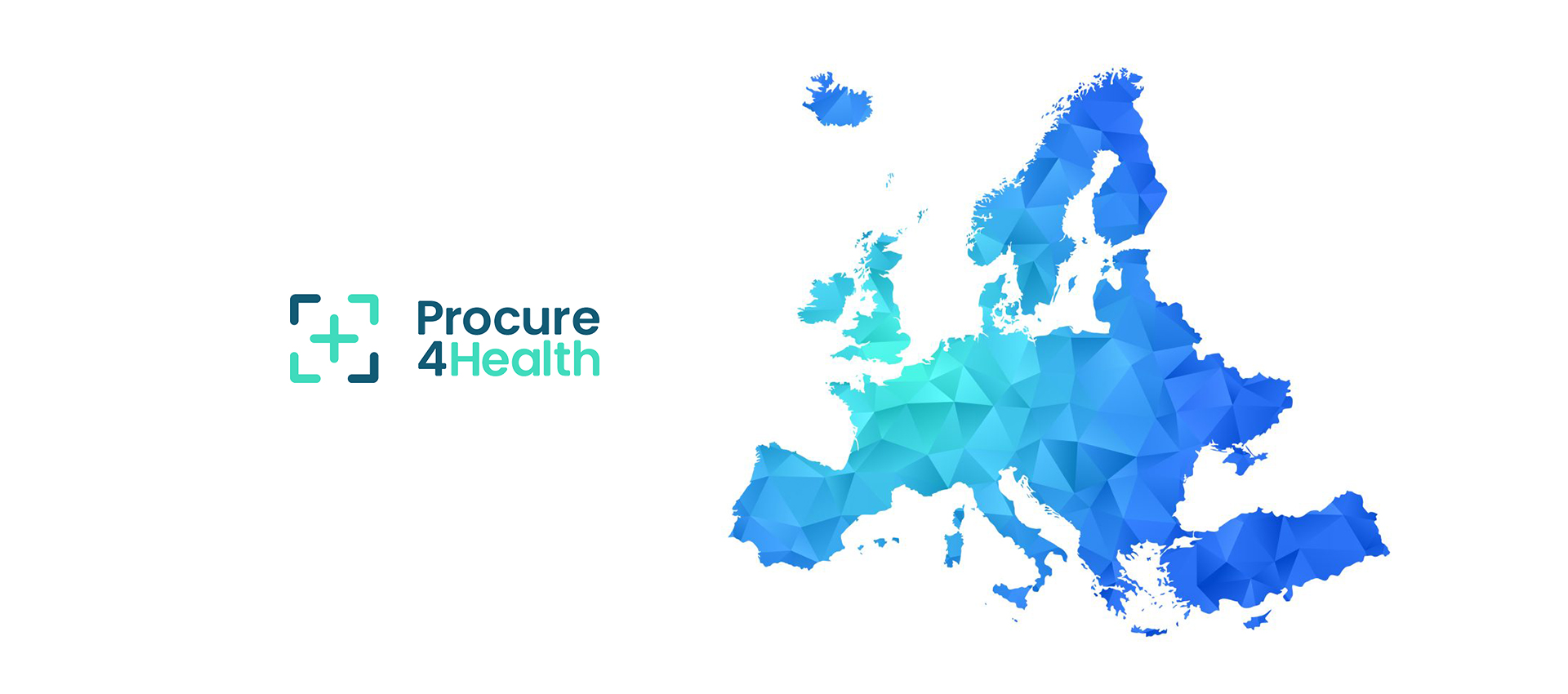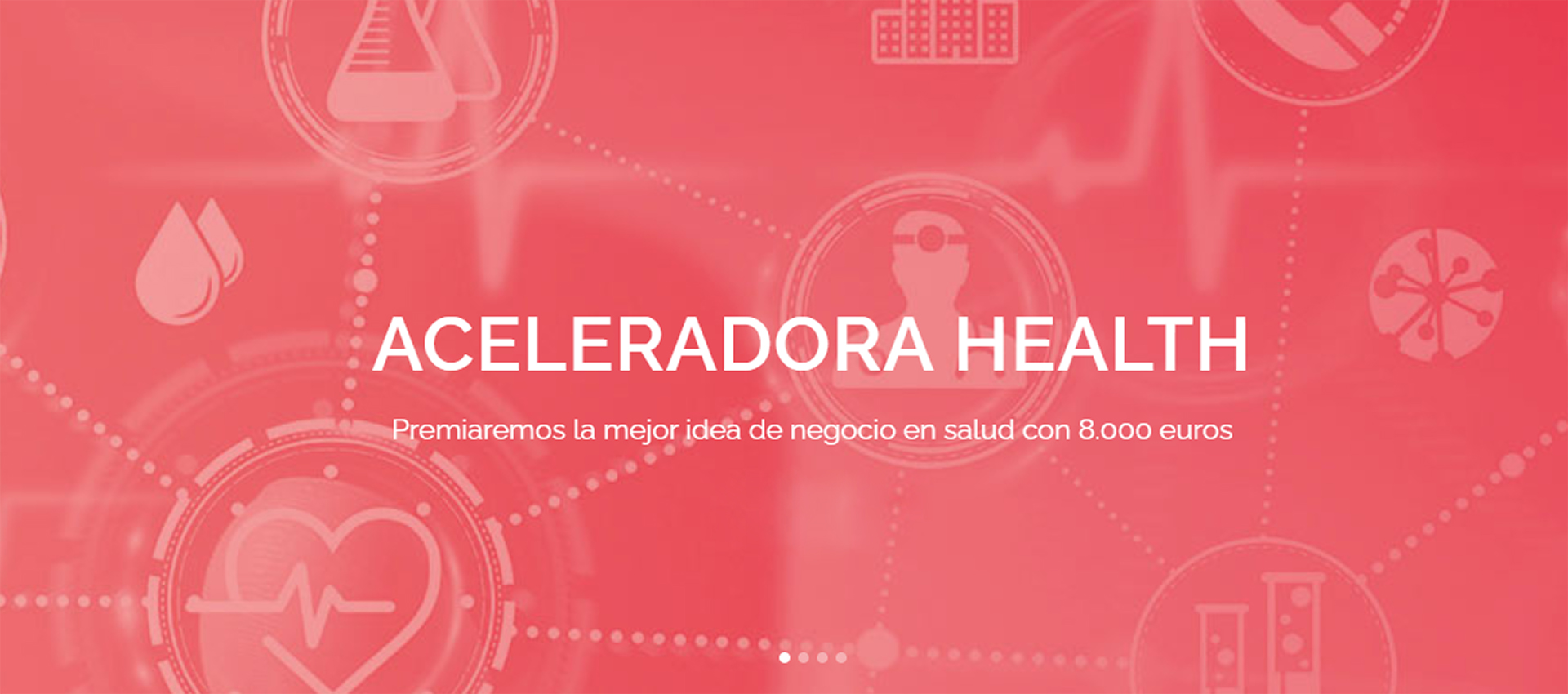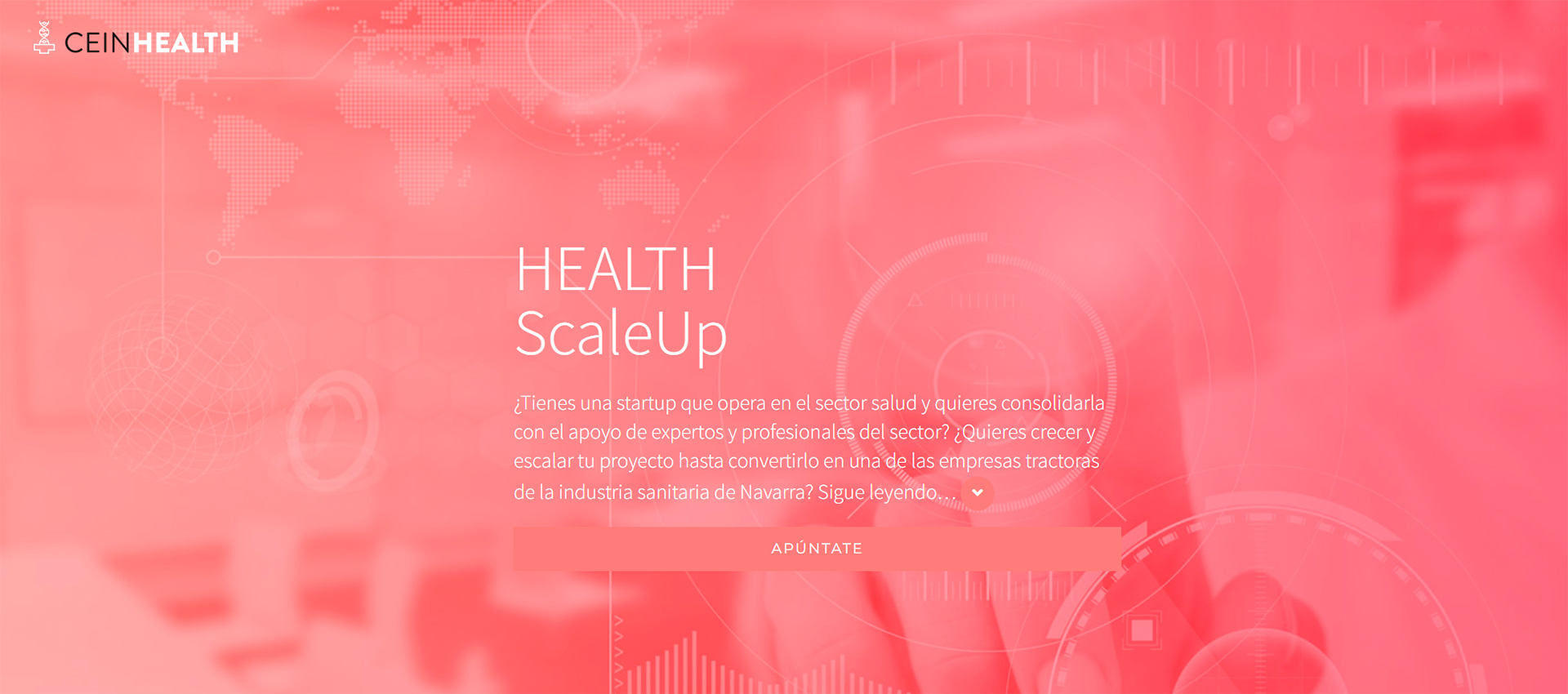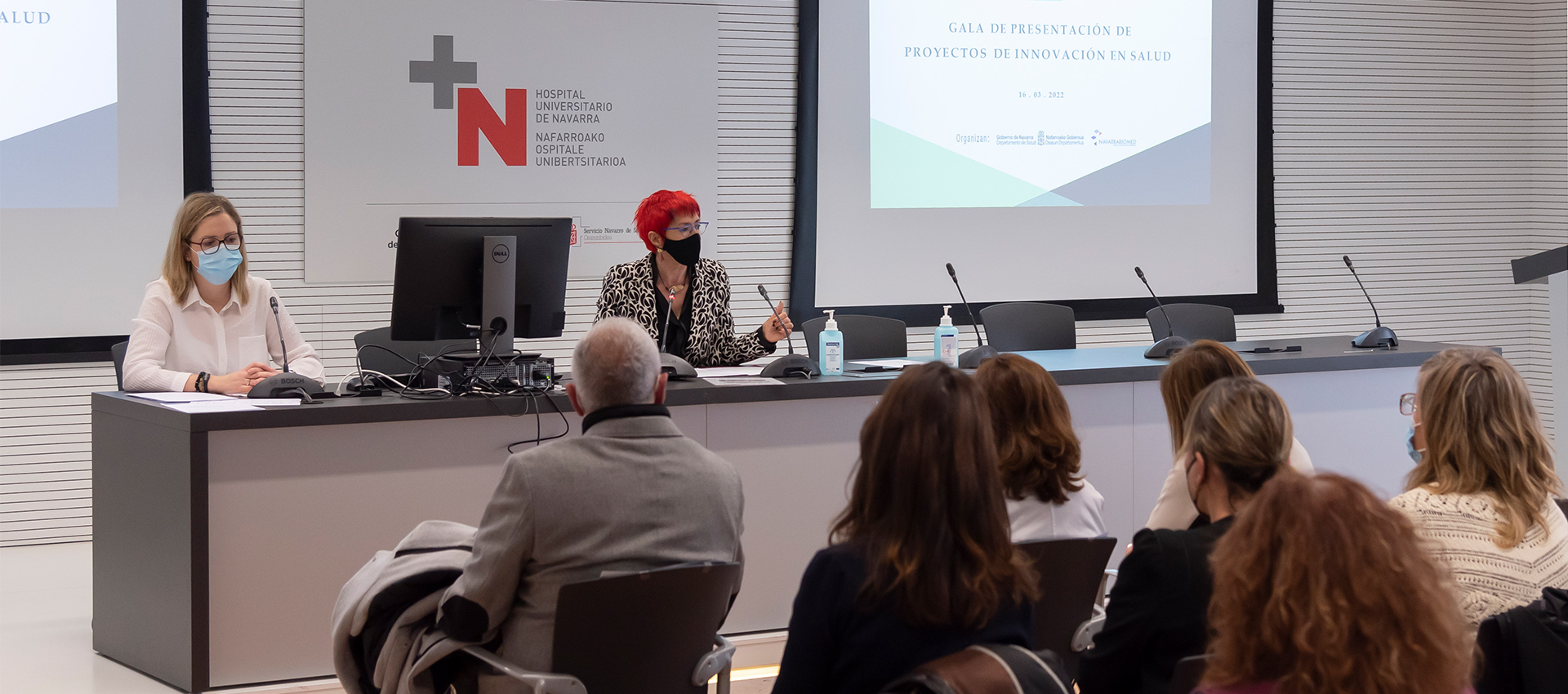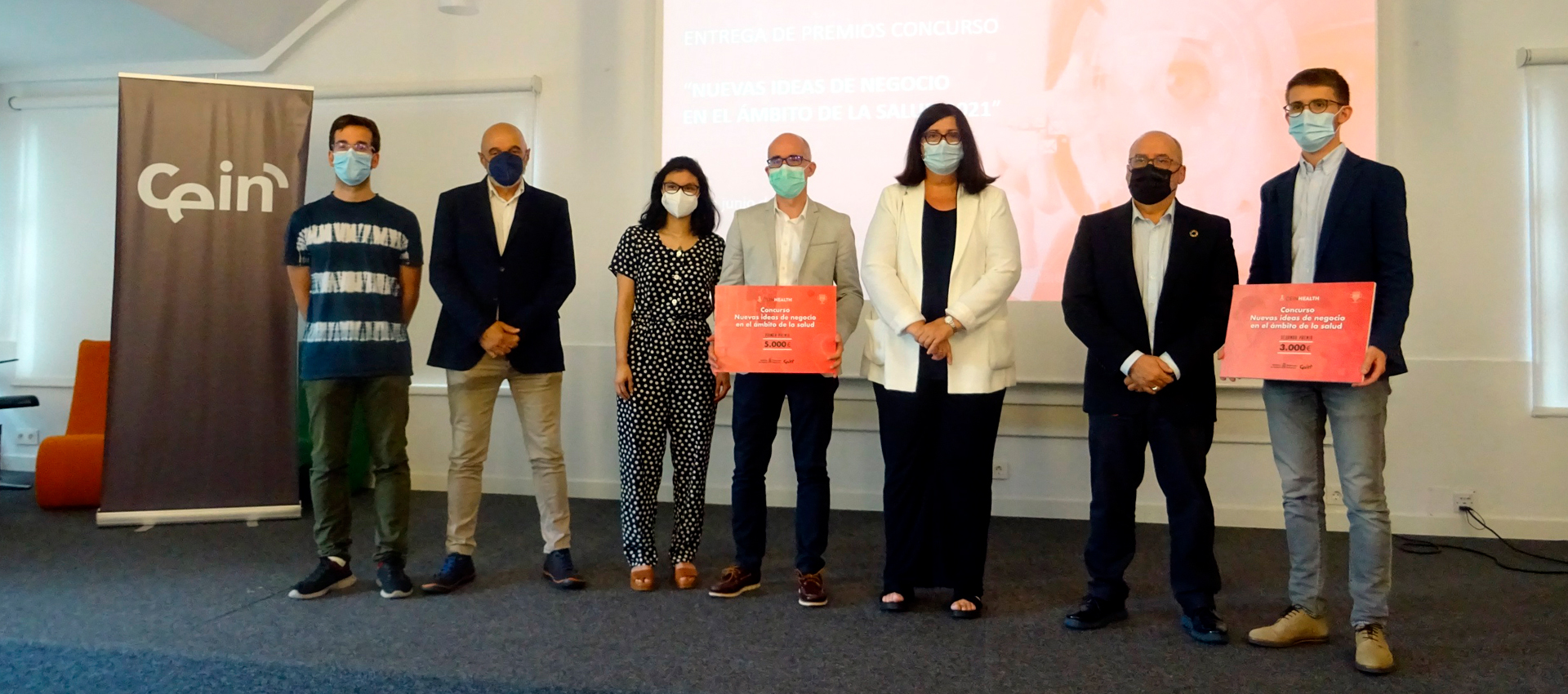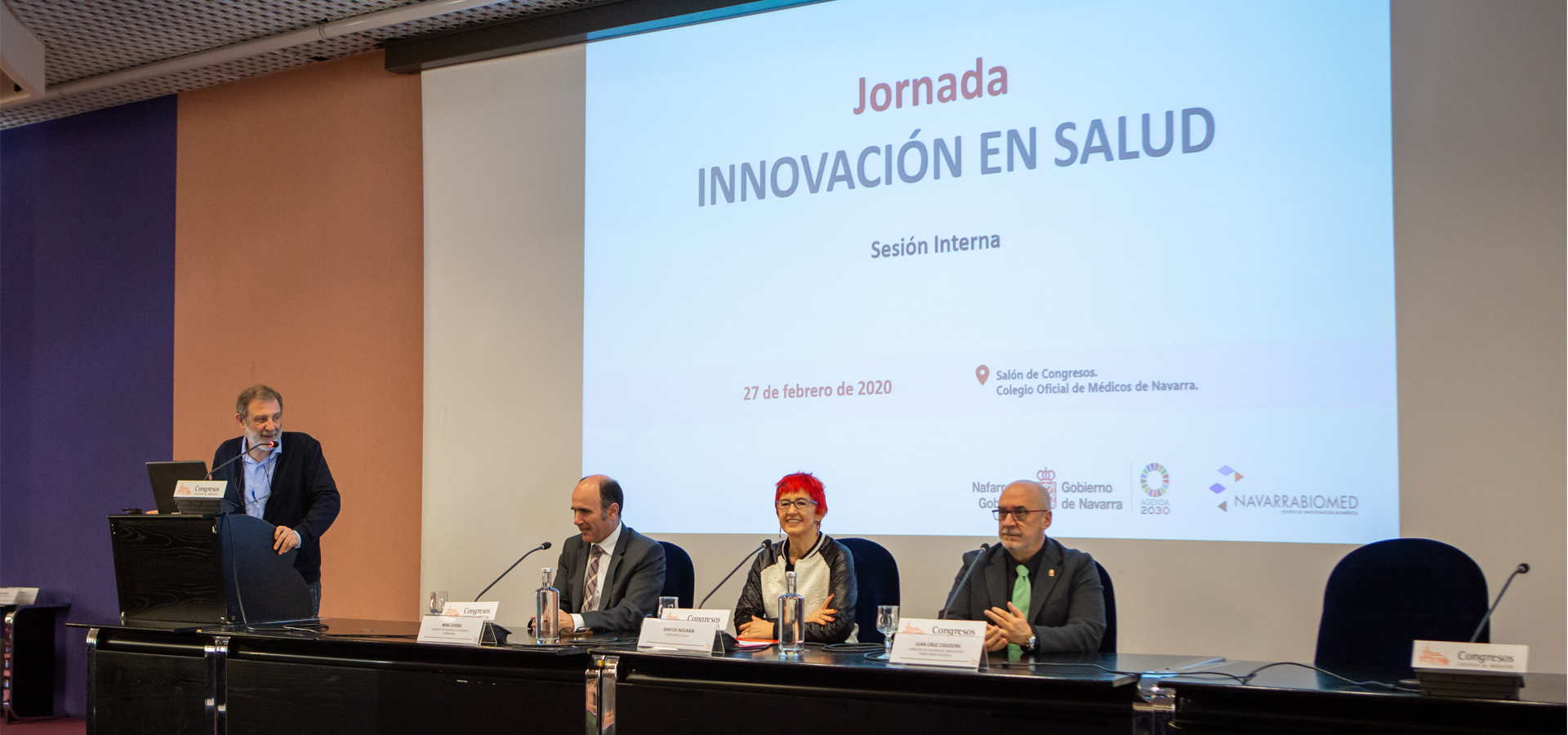Organizada por el Gobierno de Navarra, ha contado con las intervenciones de la consejera Santos Induráin y los consejeros Manu Ayerdi y Juan Cruz Cigudosa.
Directivas y directivos del sistema público de salud de Navarra han participado, en el día de hoy, en una jornada interna de análisis y reflexión sobre cómo integrar la innovación en su proceder diario. Organizado por el Gobierno de Navarra, el evento ha contado con la participación de los departamentos de Salud, Desarrollo Económico y Empresarial y Universidad, Innovación y Transformación Digital.
La consejera de Salud, Santos Induráin, ha participado en la apertura de la jornada ‘Innovación en Salud’, celebrada esta mañana en la sede del Colegio de Médicos. En ella, ha estado acompañada por los consejeros Manu Ayerdi, de Desarrollo Económico y Empresarial, y Juan Cruz Cigudosa, de Universidad, Innovación y Transformación Digital. En su intervención, Induráin ha afirmado que, “innovando, se encuentran soluciones que permiten hacer mejor las cosas y encontrar mejores soluciones”.
También ha explicado que la innovación en salud normalmente se asocia más a tecnologías sanitarias, nuevos fármacos, equipamientos, tecnologías de Información y comunicación, que en general, tienen unos costes elevados y ciclos de vida más cortos, y requieren unas necesidades de renovación más altas. “Sin embargo, además de esta visión tecnológica, también tenemos presentes innovaciones más vinculadas a la sostenibilidad del sistema público de salud, que tienen que ver con una innovación organizativa y operativa, aspectos más complejos que los cambios tecnológicos”, ha destacado. En su opinión, la innovación debe incentivar, además, a que los y las profesionales sean líderes, y a que conviertan la innovación en Salud en un estado de ánimo positivo, que vaya impregnando toda la organización y que vaya involucrando a todos y a todas. “No podemos olvidar algo por todos conocido: que las organizaciones de salud están basadas en personas que trabajan para personas, y éstas deben estar en el centro de todos los procesos innovadores”, ha concluido Induráin.
Por su parte, el consejero Cigudosa, que preside la comisión interdepartamental para la Estrategia Integral de Medicina Personalizada, ha remarcado que innovación “es todo cambio basado en conocimiento que aporta valor”. “Pero ese valor no ha de medirse solo en términos económicos, también se refleja en una mayor calidad de vida”, ha señalado.
En este sentido, Cigudosa ha indicado que, en Medicina, la innovación llega a las personas y mejora su calidad de vida “de forma inmediata y muy eficaz”. Además, ha puesto en valor la gran ventaja que supone aprovechar la Transformación Digital en este contexto, pues “permite una mayor celeridad” en el proceso de innovar en Salud.
Modelos, plataformas y Estrategias
En la sesión interna matutina de la jornada se ha podido reflexionar y debatir sobre modelos, plataformas y estrategias en innovación relacionadas con el ámbito de la Salud.
Desde una perspectiva más general, se h abordado la innovación desde los sistemas públicos de salud y en las Tecnologías Médicas y Sanitarias (ITEMAS), con las ponencias de Manuel Varela, director d Science & Innovation Link Office-SILO, y Galo Peralta, director IDIVAL y coordinador ITEMAS, respectivamente.
Posteriormente, y centrados en la Comunidad Foral, han tenido lugar las exposiciones sobre la Unidad de Apoyo a la Innovación en Salud, por parte del director del Servicio de Planificación, Evaluación y Gestión del Conocimiento, Javier Abad; la presentación de la iniciativa inDemand a cargo de Idoia Gaminde, jefa de la sección de Investigación, Innovación y Gestión del Conocimiento; otra sobre la evaluación e investigación clínica para garantizar una innovación adecuada, por parte del jefe de Sección de Innovación y Organización del Servicio Navarro de Salud-Osasunbidea (SNS-O), Juan Erviti; una cuarta sobre el programa de promoción de la cultura de innovación en Enfermería, impartida por la jefa de Sección de Calidad Asistencial y Seguridad Clínica del SNS-O, Carmen Silvestre; y una última, centrada en el desarrollo de un plan de mejora de Prevención de Caídas en adultos hospitalizados por Mª José González, de la Unidad de Calidad en Cuidados y Sistemas de información del CHN.
Asimismo, y completamente centradas en el ámbito de la medicina personalizada, las y los directivos de salud han tenido la oportunidad de escuchar la ponencia de Ángel Alonso, investigador principal de medicina genómica de Navarrabiomed-CHN, sobre la Estrategia Navarra en Medicina Genómica del SNS-O (NAGEN) y los proyectos contemplados en esta estrategia: NAGEN1000, PHARMANAGEN y NAGENCOL. Desde el año 2016, y gracias al apoyo del Gobierno de Navarra, se ha impulsado el desarrollo de estos tres proyectos, que sirven para implementar en el circuito asistencial del SNS-O las infraestructuras necesarias para que la información contenida en el genoma se pueda utilizar como método de diagnóstico y tratamiento de enfermedades.
También, relacionada con la medicina personalizada, y enmarcada en la Estrategia de Especialización Inteligente de Navarra-S3, ha discurrido la exposición del consejero de Desarrollo Económico y Empresarial, Manu Ayerdi. “El sector de la salud es un sector estratégico para Navarra. Estamos hablando de salud a lo largo de la vida y bienestar de toda la ciudadanía, de un sistema sanitario y asistencial de alta calidad y económicamente sostenible, y de oportunidades para generar nuevos puestos de trabajo y crecimiento” ha destacado Ayerdi. Asimismo, ha incidido en que la salud es un reto social que genera nuevas oportunidades de empleo y crecimiento. “En los 24 retos de la S3 (2017-2020) hemos puesto el foco en la medicina personalizada (Reto 8), con el objetivo de impulsar las áreas tecnológicas para el desarrollo de la medicina preventiva, la genómica, el diagnóstico avanzado y la identificación de terapias personalizadas y la fabricación de medicamentos”, ha señalado.
El director general de Salud, Carlos Artundo, ha clausurado la sesión de la mañana agradeciendo a los y las ponentes su participación y recordando que hay que seguir dando pasos para mejorar el sistema de salud público.
